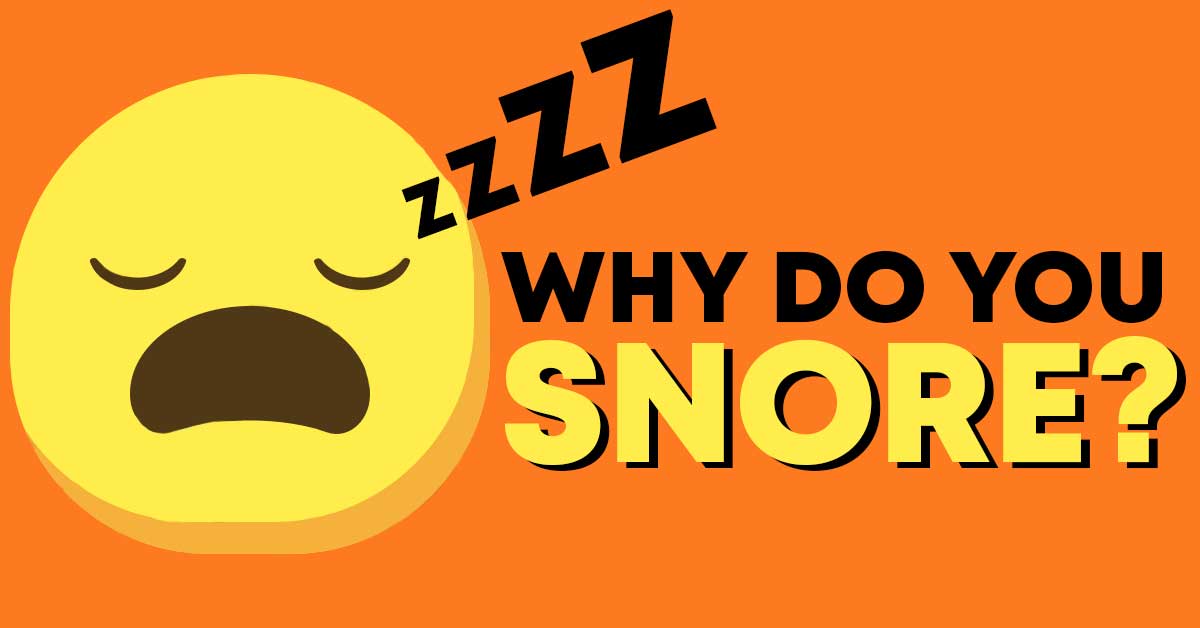If you snore through the night, you are not alone. It is estimated that 24% of women and 40% of men snore regularly. The majority of humans snore at some point in their life, though it may only be on rare occasions. Some patients who consistently snore are generally healthy, but for some patients snoring may be a sign of an underlying sleep disorder.
What causes the snoring noise?
The noise you hear when someone is snoring is the result of the air you are breathing being partially obstructed in your airways while trying to sleep. Partial blockage of your airway causes tissues on the top of your airway to vibrate, in turn creating the recognizable snoring noise.
What is sleep apnea?
Sleep apnea does not impact everyone who snores. However, most patients with sleep apnea do snore.
Patients with sleep apnea experience a partial or complete collapse of their airway when they are sleeping. This can result in periods of loud snoring followed by long periods of silence. Sleep apnea is often associated with depression, high blood pressure, and heart disease. Because of this, meaningful lifestyle changes in regard to your health can make a big difference in treating sleep apnea and reducing snoring overall.
Patients with sleep apnea commonly sleep with a continuous positive airway pressure device (CPAP) to help reduce symptoms and mitigate the risk of negative health effects.
Does my posture cause me to snore?
If you primarily sleep on your back, try sleeping on your side instead. If you can, try raising your upper body so it gradually slants upward towards your head.
It may be difficult to adjust to sleeping on your side, but there are special pillows you can utilize to make laying on your side more comfortable. Additionally, there are devices you can strap onto your back to help prevent you from rolling back into sleeping on your back.
What treatment can I receive to stop snoring?
Clevland Clinic identifies underlying conditions that attribute to snoring as the following: obesity, structural problems in the nose, enlarged tonsils, and chronic congestion. If you have any of these underlying conditions or have been chronically snoring for some time, speak to your medical provider. They will be able to identify what care you should seek next.
Testing can be completed to see how effectively your airways are working and identify if you have a sleep disorder.


